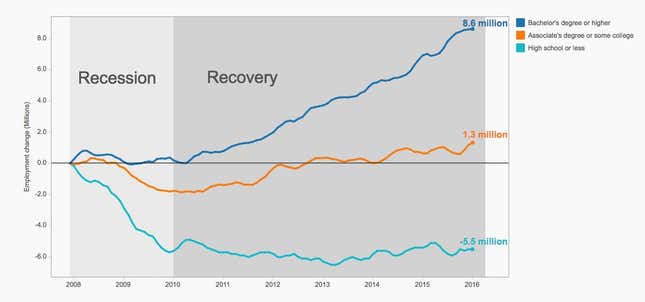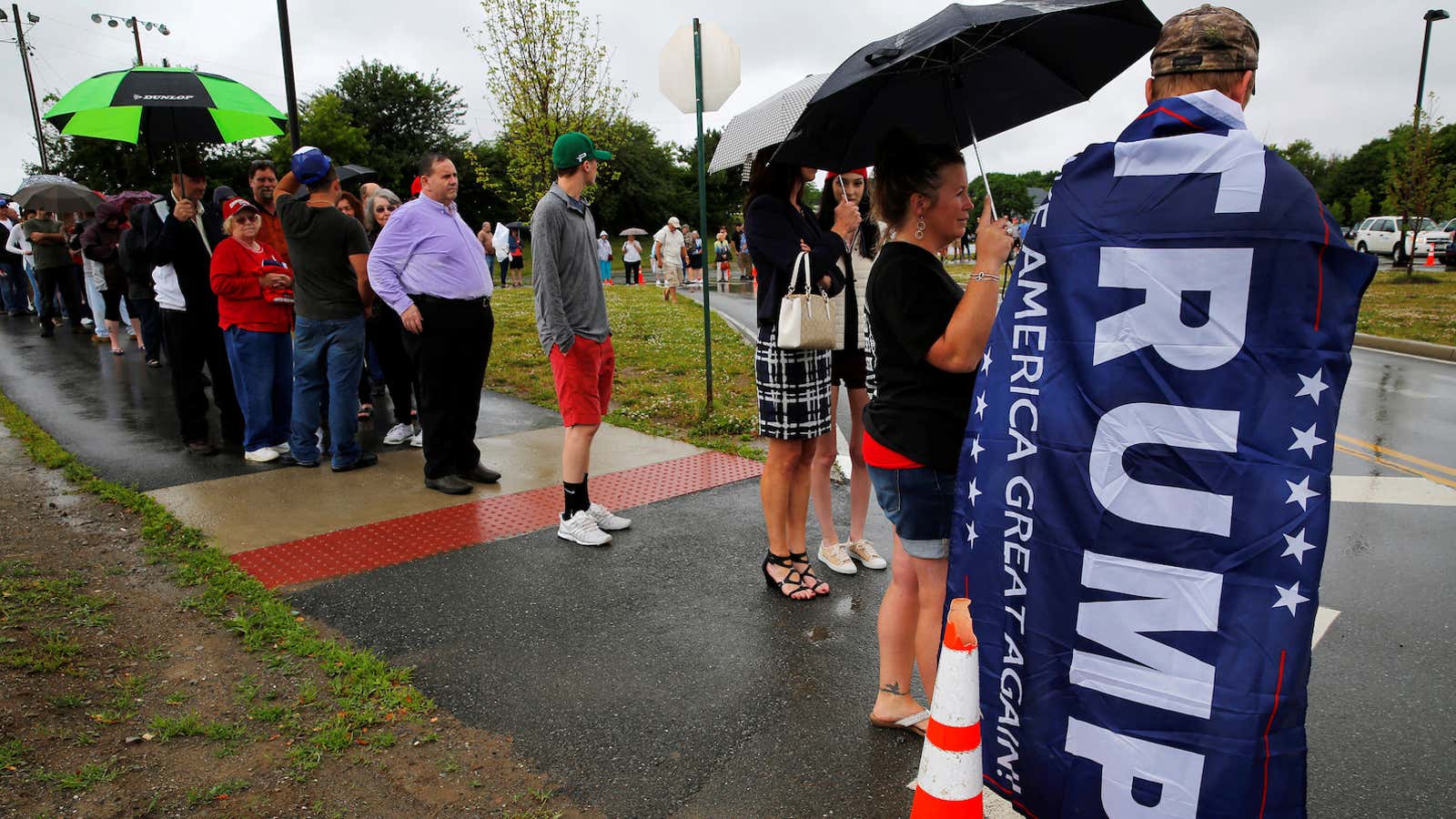A lot of people have been struggling to explain the rage being felt around the world towards the “elites.” In the US, a new report might suggest why people are so angry in a world that should be experiencing much less turmoil as it recovers from the Great Recession.
Jobs have come back back in post-recession America—but they’re reserved almost exclusively for people who went to college. Georgetown University’s Center on Education and the Workforce put out an extensive report this week revealing that while the US created 11.6 million new jobs after the recession, 11.5 million of those went to individuals with at least some college education.
It’s a sharp contrast from the pre-recession employment landscape. For the first time ever, people who hold a bachelor’s degree or higher now comprise more of the workforce than people with only a high-school diploma—36% to 34%.
According to the report, the recession “decimated low-skill blue-collar and clerical jobs.” Industries like manufacturing and construction have shrunk; office and administrative support positions—a primary source of work for non-college grads—have also dwindled, thanks to the rise of automation and digital information storage.

Millions of workers with less education are concerned about their futures right now. Especially for the 68% of Americans—209 million people—who do not hold a college degree, according to the last census, or the 34% of students who graduate high school and do not enroll in further education each year.
It could explain why so many Americans are rallying behind the likes of Donald Trump to express their frustration. Most of his supporters have been people who did not go to college, leading him to remark: “I love the poorly educated!”
That college degrees are increasingly a requirement to land a job in the US is worrying for many people who can’t afford higher education’s steep fees. As noted by Anthony Carnevale, director of the Georgetown Center and the lead author of the report: “If you can afford to send your kids to college, this is good news. If not, it’s bad news.”
While the report focuses on the US alone, similar trends are shaking other countries. Last week’s shock Brexit result was also brought about by people who lacked higher education (paywall) and who also felt left out by the new, ever more globalized economy and its easy movement of people. The parallels were not lost on Trump supporters, and the man himself suggested that Brexit is a “chance to reject today’s rule by the global elite.”
These words are resonating not with those with expensive BScs and PhDs, but with high-school graduates in a de-industrialized world.
